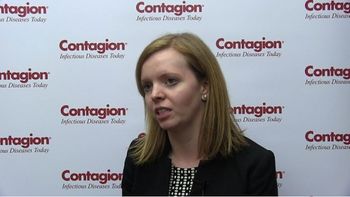
Emily Heil, PharmD, BCPS-AQ ID, assistant professor at the University of Maryland School of Pharmacy, shares an effective stewardship intervention for ruling out if someone is allergic to penicillin.

Emily Heil, PharmD, BCPS-AQ ID, assistant professor at the University of Maryland School of Pharmacy, shares an effective stewardship intervention for ruling out if someone is allergic to penicillin.
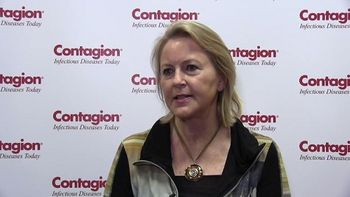
Annelies Wilder-Smith, MD, PhD, professor at Lee Kong Chian School of Medicine in Singapore, discusses the strain of Zika that hit Singapore in 2016.

Silvia Munoz-Price, MD, PhD, Associate Professor of Clinical Medicine at the Institute for Health and Society, Medical College of Wisconsin, and Enterprise Epidemiologist for Froedtert & the Medical College of Wisconsin, discusses some issues that she believes the subspecialty needs to address.
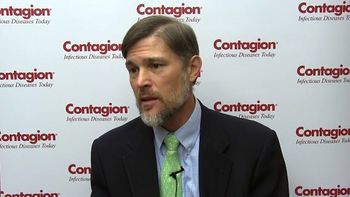
Matt Linam, MD, MS, Assistant Professor, Pediatric Infectious Diseases, University of Arkansas for Medical Sciences, explains a strategy used at his healthcare facility to prevent respiratory viral HAIs in children.

Lauri A. Hicks, DO, Director, Office of Antibiotic Stewardship, Centers for Disease Control and Prevention, discusses what we know about antibiotic prescribing habits among dentists.
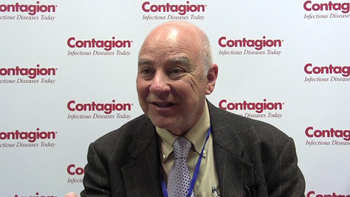
David A. Schwartz, MD, MS Hyg, FCAP, clinical professor of pathology at Medical College of Georgia, Augusta University, explains how congenital infection with Zika virus differs from congenital infection with other viruses.

Madeline King, PharmD, assistant professor of Clinical Pharmacy at the University of the Sciences, Philadelphia College of Pharmacy in Philadelphia, Pennsylvania, discusses the significance of the findings of her research on Ceftazidime-Avibactam.
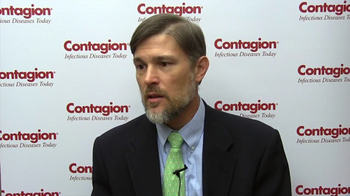
Matt Linam, MD, MS, Assistant Professor, Pediatric Infectious Diseases, University of Arkansas for Medical Sciences, explains how families and visitors can play a role in transmitting healthcare-associated infections.
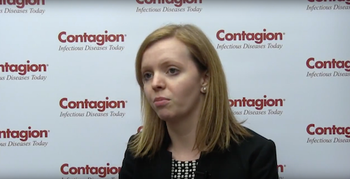
Emily Heil, PharmD, BCPS-AQ ID, assistant professor at the University of Maryland School of Pharmacy, and Contagion® Editorial Advisory Board Member, discusses how antibiotic allergies can affect stewardship.
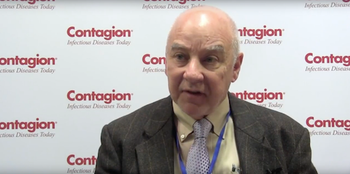
David A. Schwartz, MD, MS Hyg, FCAP, clinical professor of pathology at Medical College of Georgia, Augusta University, explains his research, which focuses on mechanisms of transmission of the Zika virus from mother to child.

Gonzalo Bearman, MD, MPH, professor of medicine, and hospital epidemiologist, Department of Internal Medicine and Infectious Diseases, Virginia Commonwealth University, discusses the aggressiveness of infection prevention strategies to stop Clostridium difficile outbreaks.

Lilian Abbo, MD, chief, infection prevention & control and antibiotic stewardship, Jackson Health System, associate professor of clinical medicine, Division of Infectious Diseases, Miller School of Medicine, University of Miami, explains the importance of rapid diagnostic testing.
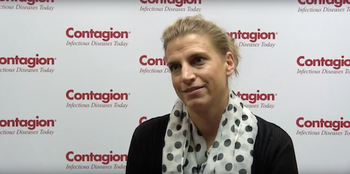
Alice Panchaud, PharmD, PhD, clinical pharmacist and pharmacoepidemiologist, CHUV, Lausanne University Hospital, Switzerland, explains how researchers can anonymously enter patient data to the international Zika virus registry, which collects data on women exposed to the mosquito-borne virus during pregnancy.

Emily Heil, PharmD, BCPS-AQ ID, assistant professor at the University of Maryland School of Pharmacy, and Contagion® Editorial Advisory Board Member, discusses some points to be mindful of when considering IV to PO conversions.
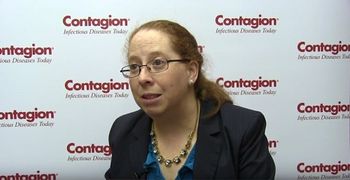
Belinda Ostrowsky, MD, MPH, Health Systems Director of Epidemiology, Antimicrobial Stewardship & Infection Prevention, Montefiore Medical Center, and Associate Professor of Clinical Medicine, Division of Infectious Diseases, Department of Medicine, Albert Einstein College of Medicine, discusses limitations to C. difficile testing that could impact stewardship practices in healthcare facilities.

Robert Bransfield, MD, DLFAPA, Associate Clinical Professor, Department of Psychiatry, Rutgers Robert Wood Johnson Medical School, examines the clinical and laboratory definitions of Lyme disease.

Emily Heil, PharmD, BCPS-AQ ID, assistant professor at the University of Maryland School of Pharmacy, and Contagion® Editorial Advisory Board Member, explains why it is important that antibiotic stewards understand pharmacokinetics and pharmacodynamics.

Rita Olans, DNP, CPNP-PC, APRN-BC, assistant professor at MGH Institute of Health Professions, explains the importance of involving nurses in antimicrobial and antibiotic stewardship programs in hospitals.

Robert Bransfield, MD, DLFAPA, Associate Clinical Professor, Department of Psychiatry, Rutgers Robert Wood Johnson Medical School, discusses the existence of chronic Lyme disease.
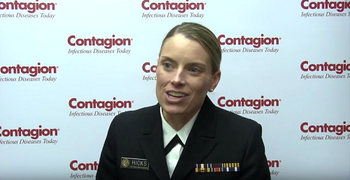
Lauri A. Hicks, DO, Director, Office of Antibiotic Stewardship, Centers for Disease Control and Prevention, explains an area of debate in the general medical field regarding antibiotics.
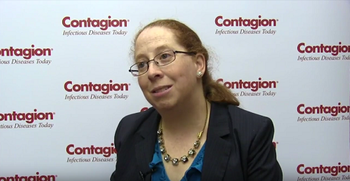
Belinda Ostrowsky, MD, MPH, Health Systems Director of Epidemiology, Antimicrobial Stewardship & Infection Prevention, Montefiore Medical Center, and Associate Professor of Clinical Medicine, Division of Infectious Diseases, Department of Medicine, Albert Einstein College of Medicine, explains how to be more sensible when it comes to testing for Clostridium difficile.

Matt Linam, MD, MS, Assistant Professor, Pediatric Infectious Diseases, University of Arkansas for Medical Sciences, explains the best ways to reduce the number of respiratory viral healthcare-associated infections in children.
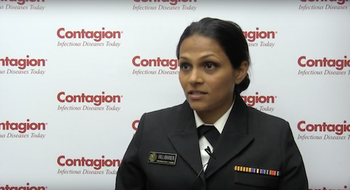
Snigdha Vallabhaneni, MD, MPH, Medical Epidemiologist, Mycotic Diseases Branch at the Centers for Disease Control and Prevention, discusses the threat that is Candida auris.

Nimalie Stone, MD, MS, Team Lead, LTC, Division of Healthcare Quality Promotion at the Centers for Disease Control and Prevention, explores the differences in infrastructure for clinical care and infection prevention in post–acute care and long-term care settings as compared to acute care hospitals.

Nicola Thompson, PhD, Epidemiologist, Division of Healthcare Quality Promotion, Centers for Disease Control and Prevention, discusses the lack of data on the burden of healthcare-associated infections in US nursing homes.

Emily Heil, PharmD, BCPS-AQ ID, assistant professor at the University of Maryland School of Pharmacy, describes what the ideal antibiotic stewardship team would look like.
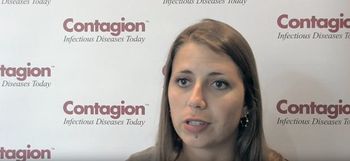
Madeline King, PharmD, assistant professor of Clinical Pharmacy at the University of the Sciences, Philadelphia College of Pharmacy in Philadelphia, Pennsylvania, discusses her findings regarding patients treated with ceftazidime-avibactam for carbapenem-resistant Enterobacteriaceae infections and carbapenem-resistant Pseudomonas infections.
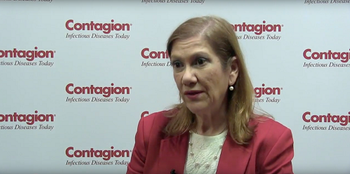
Carmen Zorrilla, MD, professor of obstetrics and gynecology, University of Puerto Rico, School of Medicine, discusses how the model of prenatal care centering works.
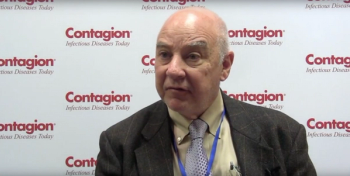
David A. Schwartz, MD, MS Hyg, FCAP, clinical professor of pathology at Medical College of Georgia, Augusta University, discusses Zika virus in indigenous populations.
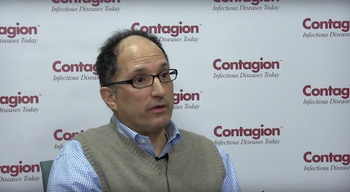
Daniel Pilch, PhD, associate professor in the Department of Pharmacology at Rutgers Robert Wood Johnson Medical School, co-founder of TAXIS Pharmaceuticals, and co-author of the study, explains the bactericidal behavior of TXA709, a new drug to treat MRSA infections.